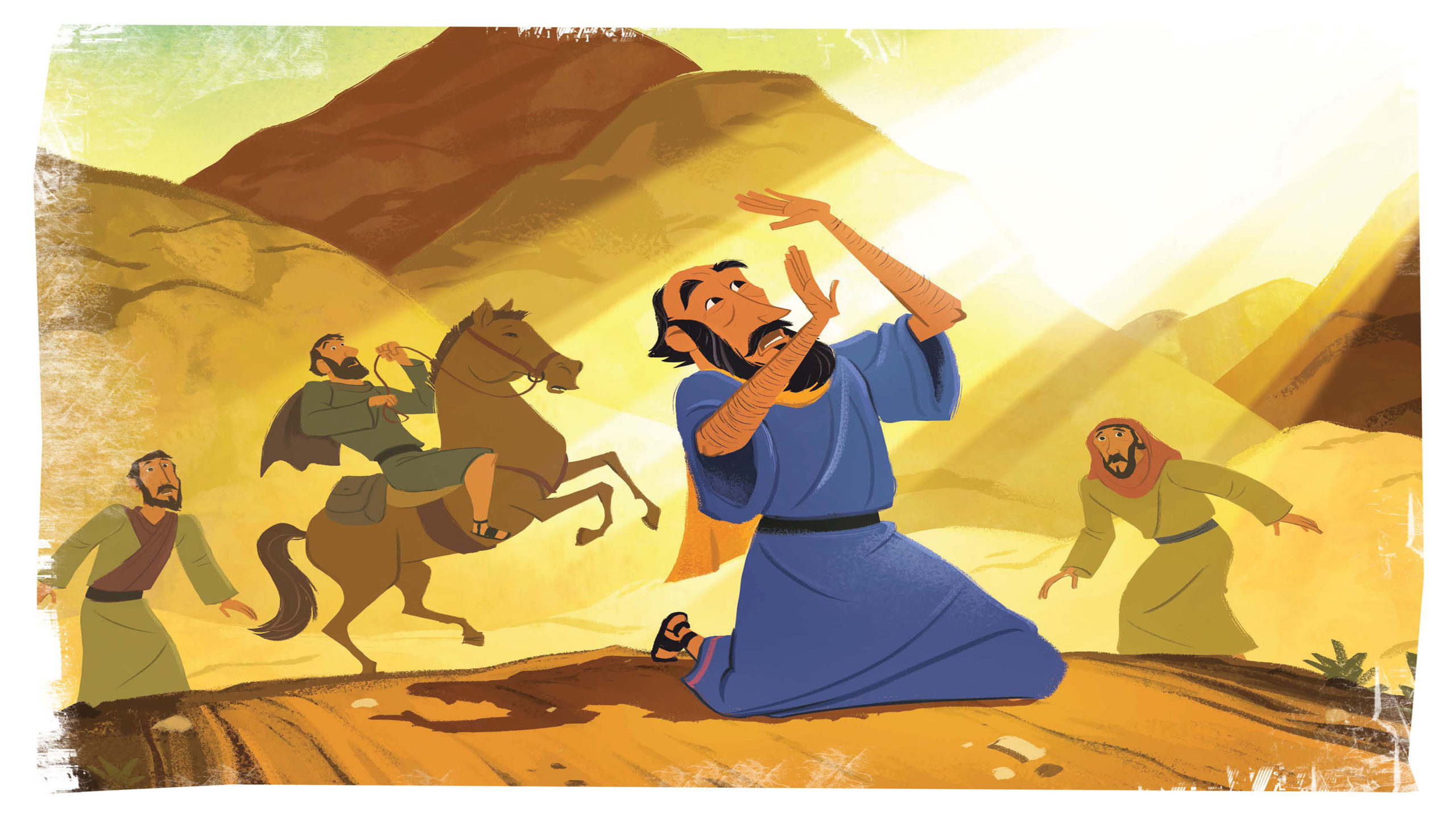
Once upon a time in the ancient city of Tarsus, there lived a man named Saul, who would become one of the most influential figures in the early Christian church. Saul was a devout Jew, well-educated in the ways of his people and deeply committed to the strict observance of their traditions. He was born into a family of Pharisees, a religious sect known for its zeal in adhering to the Law of Moses.
As a young man, Saul's passion for Judaism led him to Jerusalem, where he studied under the esteemed teacher Gamaliel, gaining a reputation for his fervent dedication to the Jewish faith. During his time in Jerusalem, he also witnessed the rising popularity of a new movement known as "The Way" or Christianity, centered around the teachings of Jesus of Nazareth.
Saul, however, saw the followers of Jesus as heretics, a threat to the traditional Jewish way of life. He considered them blasphemous and dangerous, and he was determined to do whatever it took to suppress this movement. Fueled by his convictions, he sought permission from the Jewish religious authorities to arrest and persecute the followers of Jesus.
One day, while on his way to Damascus, Saul experienced a life-changing event. As he journeyed, a bright light from heaven suddenly surrounded him, and he fell to the ground, hearing a voice saying, "Saul, Saul, why do you persecute me?" It was the voice of Jesus himself. Struck with awe and trembling, Saul asked, "Who are you, Lord?"

The reply came, "I am Jesus, whom you are persecuting. It is hard for you to kick against the goads." This encounter left Saul blinded and in a state of shock. His worldview was shattered, and he realized that the Jesus he had despised was indeed the Messiah he had been waiting for.
Saul's companions led him into Damascus, where he remained blind for three days. During this time, he fasted and prayed, seeking guidance and understanding. Meanwhile, the Lord spoke to a disciple in Damascus named Ananias, instructing him to find Saul and restore his sight.
Ananias hesitated at first, knowing of Saul's reputation as a persecutor of Christians. However, he obeyed the Lord's command and found Saul, laying his hands on him, and miraculously, Saul's sight was restored. From that moment on, Saul's life took a dramatic turn.
Now transformed, Saul embraced the teachings of Jesus and became a fervent preacher of Christianity. He changed his name to Paul and embarked on several missionary journeys, traveling far and wide to spread the Gospel message. He tirelessly worked to establish Christian communities, wrote letters to various churches, and became one of the most prominent apostles of Christ.
Paul's conversion and subsequent dedication to Christianity were not without challenges. He faced persecution, imprisonment, and hardships throughout his life, but his unwavering faith and determination allowed him to overcome each obstacle.
Paul's writings, such as his letters to the Romans, Corinthians, and other communities, have had a lasting impact on Christian theology and philosophy. His teachings on grace, faith, and salvation became integral to the foundation of the Christian faith, shaping the belief system of millions of followers worldwide.
In the end, the former persecutor of Christians had become their most significant advocate and one of the most influential figures in Christian history. The story of Saul of Tarsus, later known as the Apostle Paul, serves as a powerful reminder of the transformative power of faith and the potential for redemption and change in every individual.


